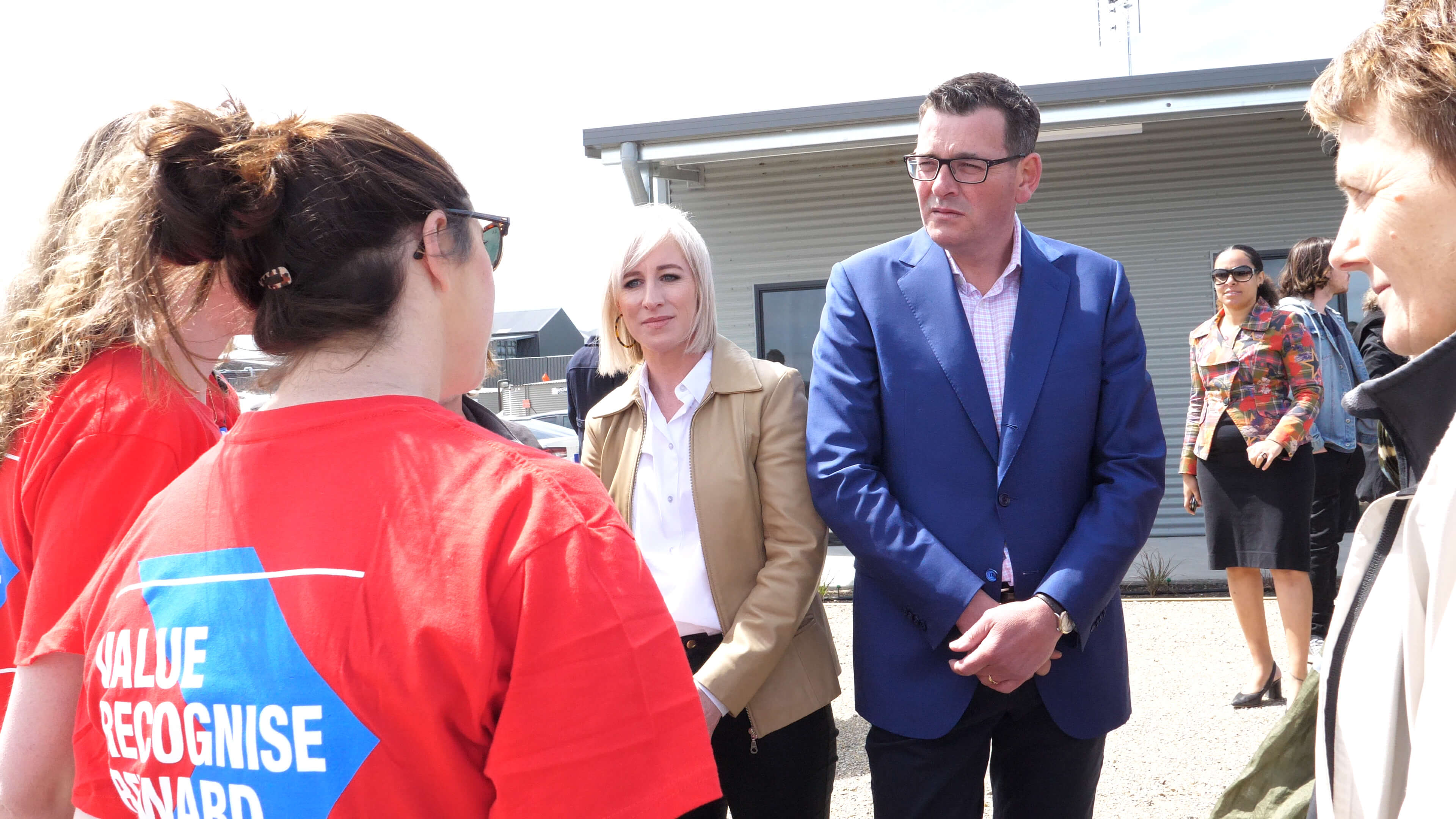
Sarah Wilson
Journalist Sarah Wilson is famous for quitting sugar and inspiring a global movement to ditch the sweet stuff.
But after the ‘I quit sugar’ books and diet programs grew into a brand turning over $1.8 million annually, Ms Wilson announced in 2018 she was closing the business and giving the profits to charity.
Ms Wilson explained to nurses and midwives at the ANMF (Vic Branch)/NMHPV Nurses & Midwives Wellness Conference that money was not her driving force and there were other subjects she wanted to educate people about. She has written a bestselling book about her experience of managing anxiety, First, We Make the Beast Beautiful.
At the conference Ms Wilson said she had several chronic illnesses involving anxiety: bipolar disorder, obsessive-compulsive disorder and ‘a bunch of autoimmune diseases’.
And writing about anxiety does not mean she has abandoned the subject of sugar.
‘There’s a huge connection between anxiety and sugar consumption,’ Ms Wilson said. ‘Quitting sugar is almost non-negotiable if you’ve got any kind of anxiety disorder.’
Ms Wilson acknowledged that this may be hard for nurses and midwives lured to the vending machine on a nightshift.
But Ms Wilson said levels of serotonin — a neurotransmitter that mediates satisfaction and happiness — were mainly connected to gut health, with 80 per cent of serotonin created in the gut.
Sugar causes gut dysbiosis, a condition in which intestinal bacteria are out of balance and pathogenic bacteria begin to dominate, creating inflammation.
In managing anxiety, ‘we have to find ways to modulate, not eradicate’. As a visualization tool, Ms Wilson said she imagines she is carrying a shallow bowl of water that has to be kept as balanced as possible ‘because when it starts to get unstable it starts to slosh around and spills all over my loved ones’.
Techniques to reduce anxiety
- Don’t drink your sugar
Quit drinking soft drinks and fruit juices. - Avoid low-fat products
When manufacturers reduce fat in foods, they generally replace it with sugar. - Avoid snacking
Snack foods in packets tend to have sugar — even packaged ‘health’ bars. Rather than snacking, eat three decent meals per day to create an even flow of energy. - Make less decisions
The anxious part of the brain is intertwined with the part of the brain that controls decision-making, Ms Wilson said. Anxiety over-taxes the decision-making part of the brain and, conversely, making too many decisions can create anxiety. Automate as much of your life as possible. - Make decisions for the anxious loved one in your life
One of the kindest things you can do for a partner, child or friend who suffers anxiety is make as many decisions for them as possible, especially when they are anxious. Don’t give them too many options. - Walk as often as you can.
Countless studies show that walking helps anxiety. Walking and discerning thought take place at the same pace, so you can constructively work things out while taking a stroll. Walking occupies the part of the brain that anxiety could be occupying. - Meditate – 20 minutes per day – wherever you can (stop and drop).
Stop the over-thinking and drop into a heart space. - Gratitude ritual
Each night think about three things you are grateful for. - Create your own boundaries
There used to be society-created boundaries, such as shops being closed on Sundays and no mobile phones or email. There was socially-sanctioned time to spend with family and friends. Turn your phone off at 8pm, don’t take your phone out to dinner and carve out your ‘Sabbath’ for family and friends without bringing phones and tablets. - Connect with others
A lot of our dis(ease) comes from loneliness. The happiest the British have ever been was during the London Blitz. The speculation is that the Brits prospered from being gathered together in bunkers, rallied by a common threat and purpose.




